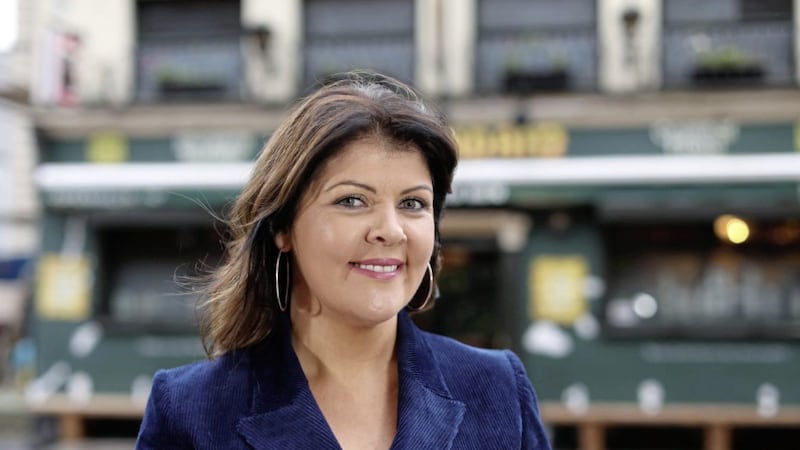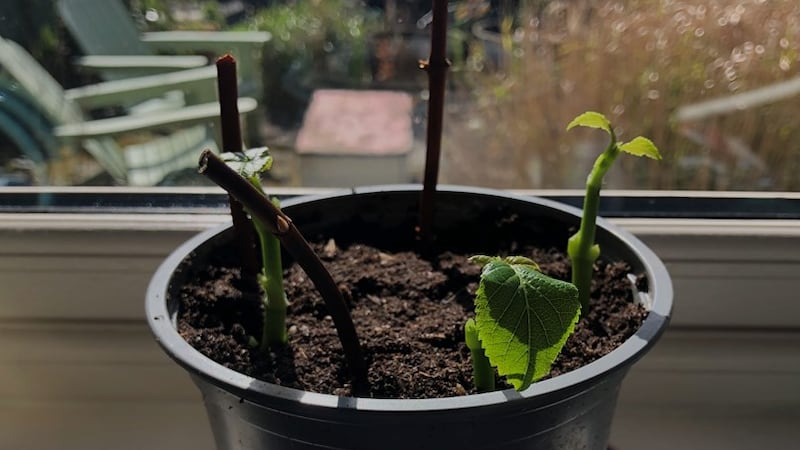IT’S under six week’s until Christmas. We don't have much left in 2020, which has been quite the year, and one that we can’t wait to forget.
2020 has been the year of home. Builders are busier than ever with home improvement jobs, home decorating is riding the crest of a wave, as is the buoyant housing market.
While some are preoccupied with the physical shape and style of the house, the reality within the walls of home has changed remarkably for all of us this year. Our freedom is limited, few have the option to be away from the house for long, children have been home schooled for a huge portion of the year and while we continue to limit our social contacts, staying in is the only option we have.
Tensions in the home are high – understandably so, with families cooped up in limited spaces. One alarming result of this is that domestic abuse is on the rise in these islands. As reported by Jennifer O’Leary on BBC Spotlight this week, domestic abuse is at a 15-year high here in Northern Ireland. Some 32,000 incidents were reported to the PSNI between June 2019 and July 2020.
The home has become a prison and a torture chamber for victims.
The Spotlight investigation specifically highlighted the work of Foyle Women’s Aid. We saw the highly sought after apartments, needed for refuge by women and children fleeing domestic abuse in the home. We heard from crèche workers, dealing with children who have experienced this trauma.
Most importantly, we heard the first-hand testimony of the extremely brave women who told their stories. Each of them had a harrowing story to tell. Each one of them was telling this story publicly in an effort to save other women from the same fate.
Irene was married for 32 years, and finally left her husband after a particularly violent assault. We saw the photographs of her injuries – you would be forgiven for mistaking her for having red hair, such was the amount of blood due to a blow to the head, which was almost fatal.
Why did she stay? It’s easy to look at a situation from the outside in and wonder why the victim just doesn’t leave.
We live in a society where everyone is expected to settle down, get married, have children. The quicker you tick those boxes, the fuller a citizen you become. We worry a lot about what other people might think. So, even in extreme cases, despite the levels of abuse going on in the home, the victim doesn’t leave.
It is more difficult to leave if children are involved. Sometimes, religious beliefs stop people from leaving a situation that is detrimental to their physical and mental wellbeing, – so much so that it could end in death. Is marriage worth protecting if this is the cost?
In the Spotlight programme, Alannah spoke powerfully the perception of the survivors of domestic abuse – they can be perceived as weak. They believe that they can fix their partner – he doesn't mean it, he will change. Sadly, the reality is that perpetrators have the measure of the victim and they know exactly what buttons to press.
The button pressing is a big part of coercive control. Women’s Aid describe this as an act or pattern of acts of assault, humiliation and intimidation or other abuse that is used to harm, punish, or frighten their victim. Coercive control is a crime in Scotland, England, Wales and the Republic, but not here in Northern Ireland.
Just last week, after the first trial under the Republic's 2018 Domestic Violence Act, a man was convicted of coercive control, intimidation and mulitiple assaults against his former partner – this man cut his victim with a pizza slicer.
Earlier this year, in a BBC Panorama investigation into domestic abuse during the first lockdown, one woman told the presenter how on when the first lockdown was announced, he looked over at her, had his arms folded back and chest out, looked at her and said, "let the games begin". She went on to tell how she was horrifically abused.
Yet, domestic abuse is still a huge taboo in our society. I was delighted to see the issue being highlighted this week and hope that this conversation continues.
Lynette Fay presents The Lynette Fay Show, Monday-Thursday, BBC Radio Ulster, 3pm. BBC Spotlight – Domestic Abuse is available on BBC iPlayer.









